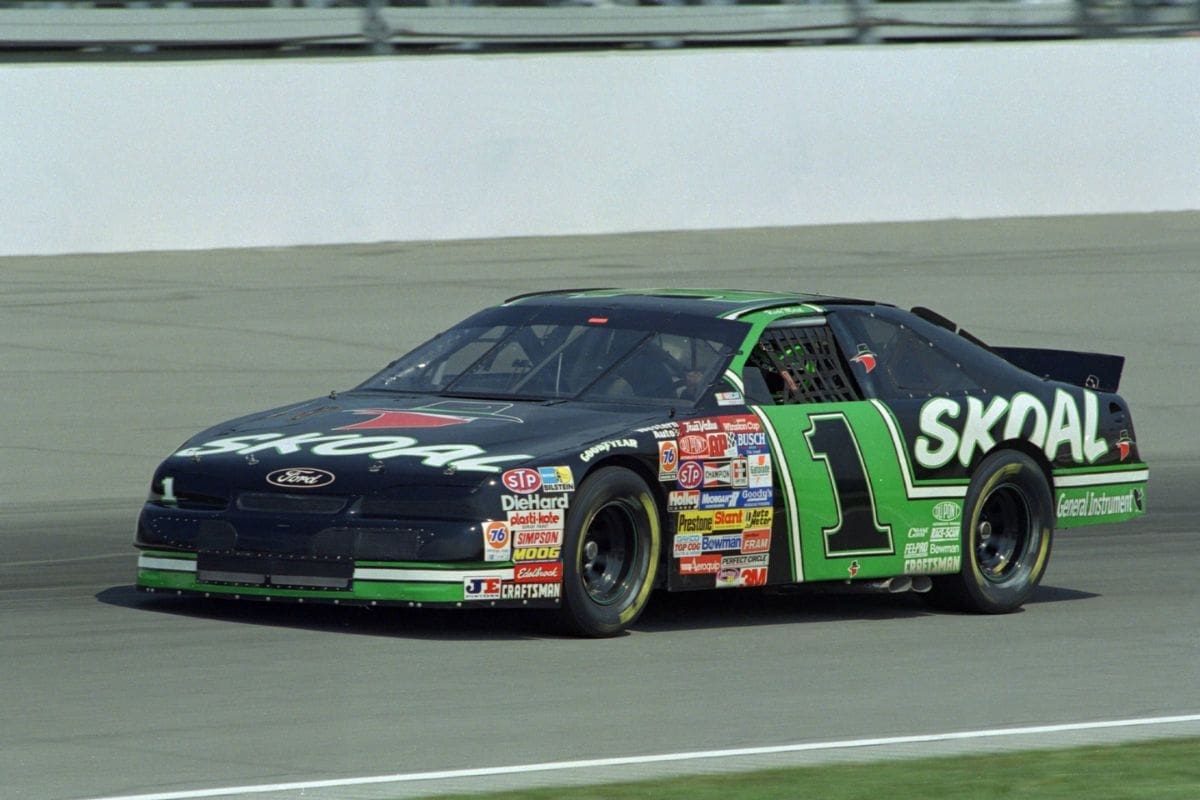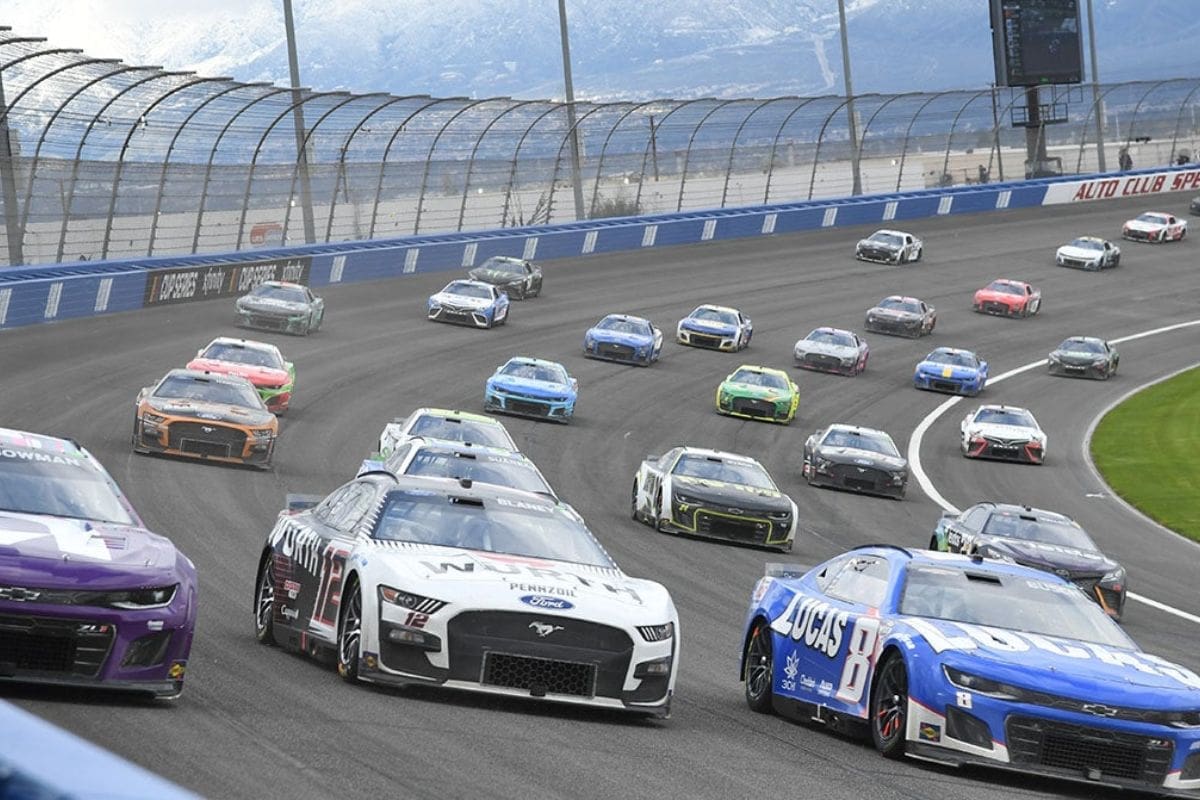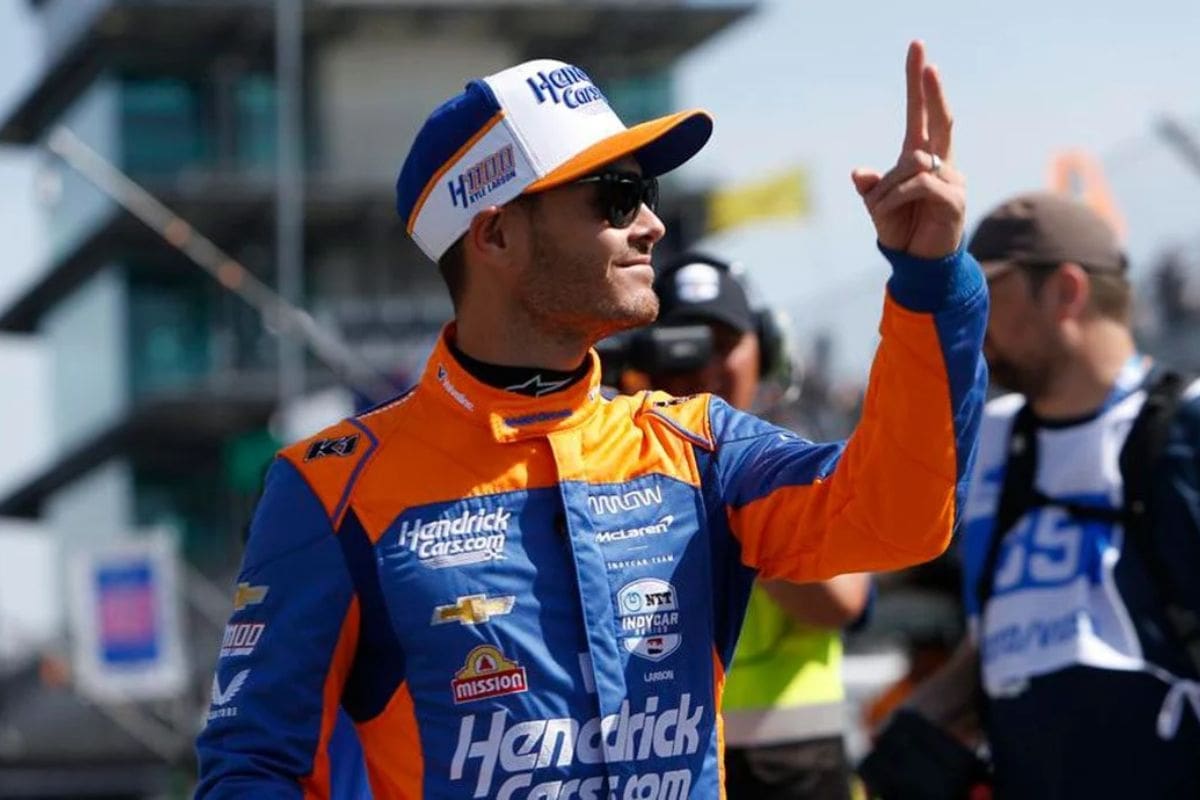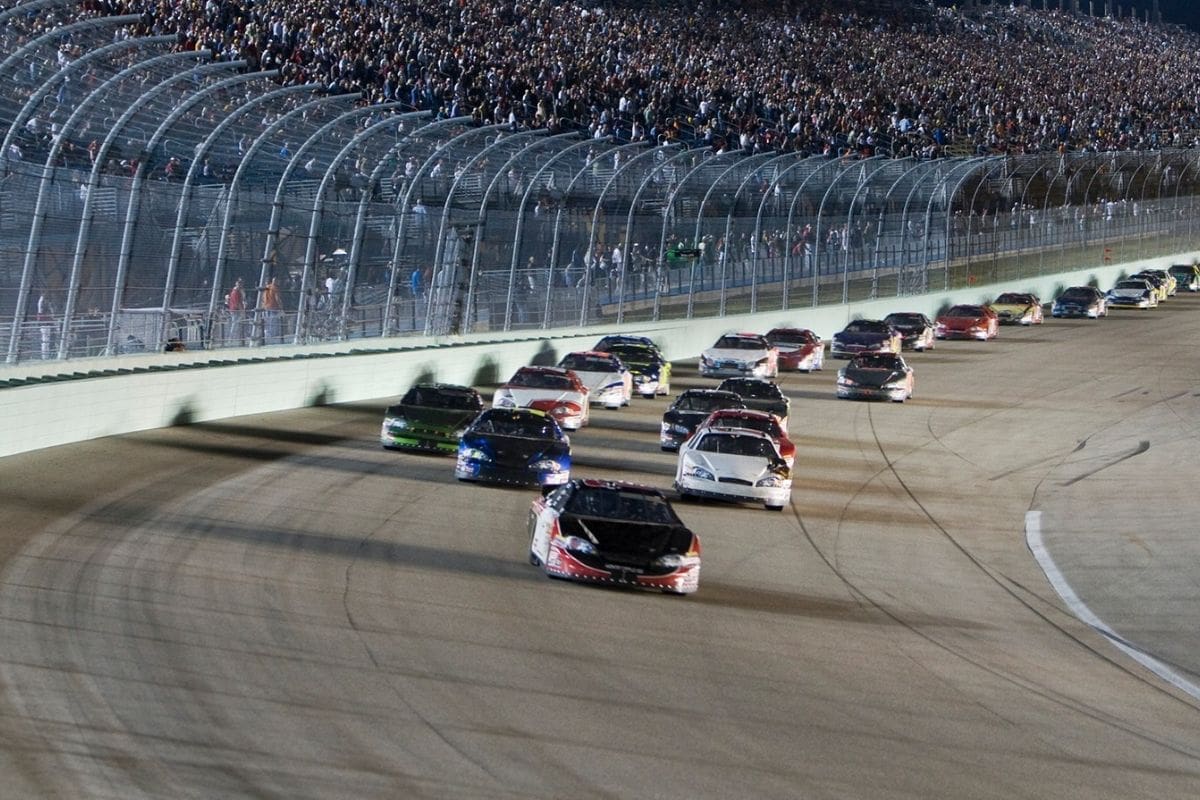NASCAR’s Negative Hype Angers Rick Mast: In the wake of the Kyle Larson waiver controversy, NASCAR veteran Rick Mast has voiced vehement frustration, pointing to what he perceives as a failure in the sport’s leadership to act with decisiveness and integrity. Mast’s blunt critique highlights the tension between upholding a storied legacy and maneuvering modern challenges. This sentiment resonates deeply within the racing community, sparking questions about NASCAR’s current decision-making processes and their broader implications on fan loyalty and the sport’s reputation.
Key Highlights
- Rick Mast is frustrated with NASCAR’s handling of the Kyle Larson waiver controversy.
- Mast criticizes the prolonged and indecisive process, suggesting it creates unnecessary negative hype.
- He believes NASCAR’s indecision undermines trust within the racing community.
- Mast calls for decisive leadership to maintain integrity and trust among fans and drivers.
- The controversy has sparked broader discussions about NASCAR’s consistency and transparency in decision-making.
NASCAR’s Legacy and Growth
Since its inception in 1948 by Bill France Sr., NASCAR has evolved from a modest regional pastime into a globally recognized motorsport powerhouse, boasting an extraordinary legacy and remarkable growth trajectory. Bill France Sr.’s vision of organized stock car racing set the wheels in motion for what would become a cultural phenomenon, starting with the inaugural race on the beaches of Daytona. From humble beginnings, NASCAR’s growth has been nothing short of meteoric.
Throughout the 1950s and 1960s, NASCAR steadily expanded its fan base, capitalizing on America’s post-war car culture. Tracks proliferated across the southeastern United States, and the sport’s popularity burgeoned. By the 1970s, the advent of television broadcasts brought NASCAR into living rooms nationwide, transforming drivers into household names and races into must-watch events. The charisma of drivers like Richard Petty and Dale Earnhardt Sr. further fueled the sport’s appeal.
The 1990s and early 2000s marked NASCAR’s golden era, as corporate sponsorships flooded in and racetracks swelled with spectators. Iconic venues like Daytona International Speedway and Talladega Superspeedway became hallowed grounds for motorsport enthusiasts. NASCAR’s strategic partnerships with major networks facilitated a global reach, drawing in international audiences and securing its place among premier sports leagues.
However, NASCAR’s path has not been without its hurdles. Controversies, ranging from safety concerns to rule changes, have periodically challenged its reputation. Yet, the organization’s resilience and adaptability have sustained its growth. Despite facing modern challenges, NASCAR continues to innovate, ensuring its enduring legacy within the world of competitive racing.
Kyle Larson’s Double Attempt and NASCAR’s Reaction
Kyle Larson’s bold attempt to master both the Indy 500 and the Coca-Cola 600 in a single day not only highlighted his exceptional talent and grit but also ignited a whirlwind of reactions within the NASCAR community. The Hendrick Motorsports driver’s decision to undertake ‘The Double’ was met with both admiration and skepticism, emphasizing the broader complexities of such an ambitious feat.
- Intense Physical and Mental Demands: Competing in two of the most demanding races on the same day required unmatched endurance, focus, and adaptability. The physical toll of driving roughly 1,100 miles in different conditions is no small challenge.
- Logistical Challenges: Coordinating the logistics of moving from Indianapolis to Charlotte in a matter of hours demanded precise planning. Every moment counted, from air travel to the pit stops, highlighting the remarkable coordination required behind the scenes.
- Weather Complications: Larson’s efforts were greatly hindered by inclement weather, particularly impacting his performance in the Coca-Cola 600. Rain delays added unforeseen variables that disrupted the rhythm and strategy crucial for success.
- NASCAR’s Reaction: The governing body’s stance on Larson’s endeavor was one of cautious support. While acknowledging the historical significance and the publicity it garnered, there was an underlying concern about the potential risks and the message it sent about driver safety and well-being.
Kyle Larson has been granted a waiver to remain in the NASCAR playoffs after missing the Charlotte race. pic.twitter.com/L4Cz7biMdH
— NASCAR on NBC (@NASCARonNBC) June 4, 2024
From an insider perspective, Larson’s daring attempt was a demonstration of his passion for racing and his relentless pursuit of excellence. It also sparked a dialogue within NASCAR about the physical and logistical boundaries that drivers can push.
Rick Mast’s Critique of NASCAR’s Handling
Rick Mast, a former NASCAR driver, voiced his frustration with NASCAR’s handling of the Kyle Larson waiver controversy, arguing that the prolonged deliberation only served to create unnecessary negative hype. On ‘The Rick Mast Show!’, Mast examined the situation, highlighting how the extended scrutiny over Larson’s waiver stirred a tempest of speculation and criticism. This, he contended, was a misstep rooted in NASCAR’s historical playbook, akin to strategies employed by Bill France Sr. to keep the sport in the public eye.
Mast’s critique delved into the three possible scenarios surrounding the waiver: outright approval, conditional acceptance, or outright denial. The veteran driver argued that a swift decision, regardless of its nature, would have mitigated the media circus and the ensuing backlash. Instead, NASCAR’s delay seemed to embody a deliberate tactic to generate buzz, a move that Mast saw as counterproductive.
“That makes me mad. Because I normally have enough inside information or not inside information, I have enough people I talk to and all and just kind of read between the lines and figure this stuff out but I can’t figure this one out. I just don’t know at this point.” – Mast
Drawing from his extensive experience within the sport, Mast highlighted the importance of decisive leadership. Prolonging decisions, he argued, diminishes the integrity of the sport and erodes trust among fans and stakeholders. He emphasized that while NASCAR’s intention might have been to draw attention, the strategy backfired, creating a cloud of negativity that overshadowed the racing action.
Mast’s insider perspective painted a vivid picture of NASCAR’s internal workings, revealing a sport grappling with its identity in the modern era. His call for prompt and transparent decisions resonated with a sentiment shared by many within the racing community: that NASCAR’s strength lies in its ability to act decisively and maintain the purity of competition.
Daniel DiOrio’s Insights
Insider Daniel DiOrio, speaking openly on the Rubbin’ is Racing podcast, revealed the underlying tensions within NASCAR regarding the handling of Kyle Larson’s waiver situation. DiOrio’s insights highlights a controversy that has been simmering beneath the surface of NASCAR’s public facade.
“It seems to, given how long it took, someone at NASCAR HQ was personally offended that Larson prioritized IndyCar over the series that he should be full-time competing in.” -Daniel DiOrio
The core of the issue, according to DiOrio, lies in the perceived inconsistency and potential personal biases influencing the decision-making process.
“I think that’s just an unfair criticism, he was doing something to grow the sport, and bring more eyes onto the sport…To me, it’s a little concerning that it took this long and there seems to be some feelings hurt in the process. I understand he is a NASCAR Cup Series driver and that should be the main priority, however, he was doing something that was historically celebrated…” -Daniel DiOrio
- Critical Treatment: Chase Elliott received two separate waivers with relative ease, despite missing several races and serving a suspension. In contrast, Kyle Larson faced significant delays and scrutiny, indicating a lack of uniformity in NASCAR’s waiver policies.
- Offense Taken: DiOrio suggested that someone at NASCAR headquarters may have been personally offended by Larson’s prioritization of IndyCar over NASCAR, potentially impacting the prolonged waiver process. This suggests that personal feelings could be influencing professional decisions, a concerning notion for any sports organization.
- Implications for Drivers: The situation has broader consequences for the driver community, raising concerns about fairness and transparency. If waivers are granted based on subjective criteria, it could erode trust in NASCAR’s regulatory framework.
- Public Perception: The controversy has not gone unnoticed by fans and media, contributing to the negative buzz surrounding NASCAR. The perception of bias and inconsistency could tarnish the sport’s image, making it essential for NASCAR to address these concerns explicitly and transparently.
👋 @KevinHarvick thinks Kyle Larson deserved a waiver, but also thinks it's time to talk about the waiver system and if it's needed: "The win is the waiver."@MambaSmith34 | @KaitlynVincie | #NASCAR pic.twitter.com/x58Xc02tyg
— HarvickHappyHour (@HarvickHappyPod) June 5, 2024
Fan Reaction
The controversy surrounding the waiver decisions has sparked a substantial outcry among NASCAR fans, who feel increasingly disillusioned by the perceived inconsistency and favoritism within the sport’s governing body. The negative publicity, as highlighted by Rick Mast, has not only undermined the trust of the fanbase but also cast a shadow over the integrity of NASCAR’s administrative decisions.
Fans have taken to social media and forums to express their frustration, calling for greater transparency and fairness in the decision-making process. They argue that the prolonged handling of the situation appears to be a strategic move to generate buzz, albeit at the cost of eroding fan loyalty. This sentiment is echoed by many long-time followers of the sport who are dismayed by what they see as a departure from NASCAR’s core values.
News in Brief: NASCAR’s Negative Hype Angers Rick Mast
Rick Mast’s criticism highlights a broader discontent within the racing community, reflecting concerns over NASCAR’s decision-making and its impact on the sport’s integrity.
The controversy surrounding Kyle Larson’s waiver has intensified scrutiny on NASCAR’s leadership and its ability to manage public perception.
Daniel DiOrio’s insights and the fan reaction further illuminate the dissatisfaction, emphasizing the need for transparent and decisive governance to preserve trust and loyalty among fans and industry stakeholders.
ALSO READ: NASCAR Fans Agree with Rick Mast, Reject “Racist Sport” Label




